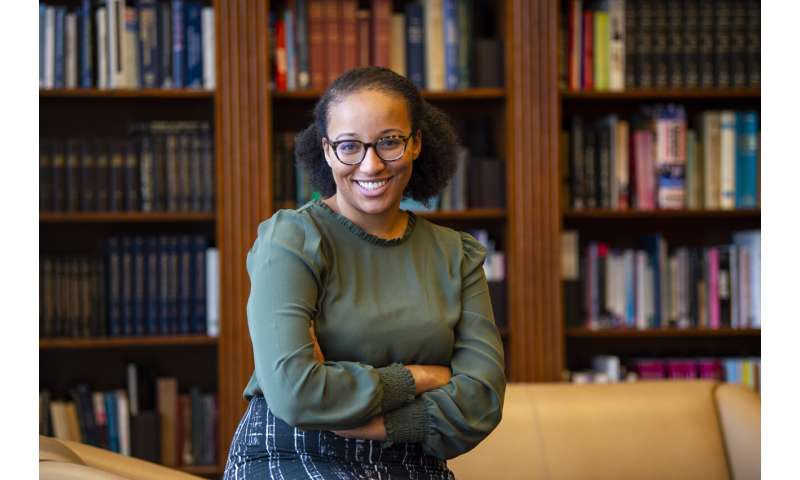Words matter: Does media coverage impact the student loan debt narrative?

Dominique J. Baker, a nationally recognized expert on education policy in SMU's Simmons School of Education and Human Development, has received an emerging scholars pipeline grant to explore the links between race, racism, and how student loan policies are covered in media.
The $30,000 grant is from the Russell Sage Foundation (RSF), in partnership with the Economic Mobility and Opportunity program at the Bill & Melinda Gates Foundation.
Using SMU's high performance computing cluster, Baker will analyze more than 90,000 newspaper articles from eight outlets to determine how often, if at all, news media outlets use words or phrases that convey ideas about race and racism when writing about student loans. She will explore both what the articles communicated and how words and phrases were used within the articles.
Words matter, Baker said, because "media discourse on student loans, including the way that race, racism, and student loans intersect in the framing of the issue, plays a significant role in the public and policy actors' understanding of student loans' challenges and potential solutions."
"Focusing on policy communication through the media will help to ensure that the public and policy actors do not rely on decontextualized and race-neutral understandings of student loan debt," she said.
Americans owe a record-breaking $1.7 trillion in student loan debt. Multiple studies, including research done by Baker, have shown that black college students are especially hard hit by student debt, in part because they are more likely to take on higher amounts of debt while earning less than their peers. Reasons for that are many, including labor market discrimination and inequities in students' and families' ability to afford college due to centuries of deliberate policymaking decisions in the United States, Baker said.
Baker was one of 23 professors who received the RSF-Gates Pipeline Grant, which is designed to support early- and mid-career tenure-track scholars who are underrepresented in the social sciences and to promote diversity broadly, including racial, ethnic, gender, disciplinary, institutional, and geographic diversity.
Her research focuses on the way that education policy affects and shapes the access and success of minoritized students in higher education. She primarily investigates student financial aid, affirmative action and admissions policies, and policies that influence the ability to create an inclusive and equitable campus climate. Baker is the 2021 recipient of the Association for Education Finance & Policy's Early Career Award and the Association for the Study of Higher Education's Excellence in Public Policy Award.
Baker will examine the racialized framing of student loans using National Language Processing (NLP) techniques on 15 years' worth of news articles from eight representative media outlets, including The Wall Street Journal, The New York Times and The Atlanta Journal-Constitution.
Findings from the study are expected next year.
About SMU
SMU is the nationally ranked global research university in the dynamic city of Dallas. SMU's alumni, faculty and nearly 12,000 students in eight degree-granting schools demonstrate an entrepreneurial spirit as they lead change in their professions, communities, and the world.
Provided by Southern Methodist University